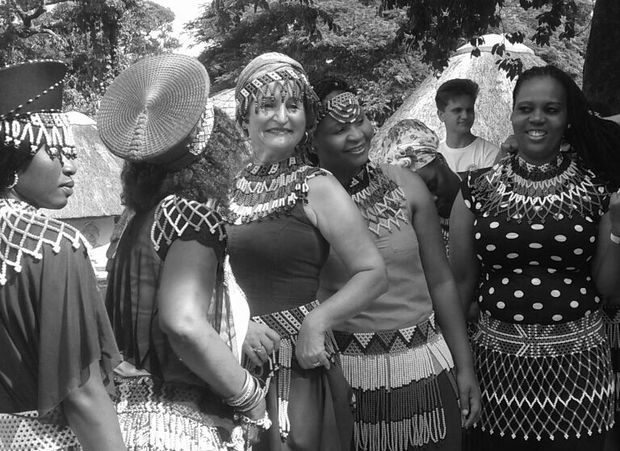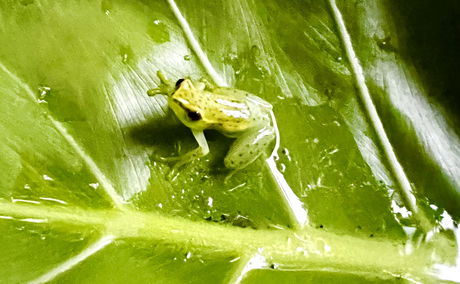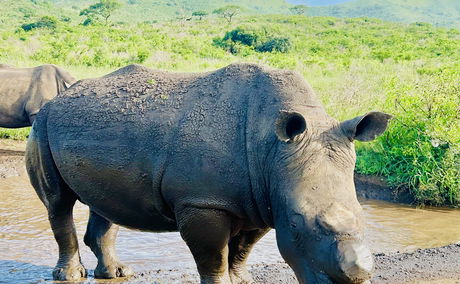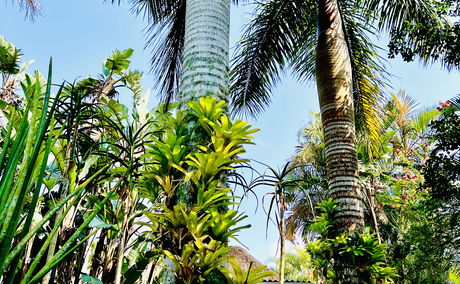St Lucia is often described by what surrounds it, a small coastal town enveloped by the remarkable iSimangaliso Wetland Park, where estuary, forest, dune systems, and ocean converge. Here, nature is not confined to distant viewpoints or fenced reserves. It threads itself through daily life, moving quietly between gardens, along sandy paths, beneath leaves, and across walls. While larger animals understandably capture the imagination, another world exists alongside them — smaller, subtler,...
Zulu Culture in Zululand: Respectful Encounters and Meaningful Experiences

In the heart of Zululand, the charming village of St Lucia is not only a gateway to the breathtaking iSimangaliso Wetland Park, but also to the heartland of the proud and powerful Zulu nation, South Africa’s largest ethnic group. For guests staying at Lidiko Lodge, cultural exploration goes hand in hand with adventure, wildlife, and relaxation.
The Zulu culture is one of the richest and most well-preserved in Africa, and a visit to this region offers respectful and rewarding opportunities to experience it first-hand.
A Glimpse into Zulu Heritage: A Nation Shaped by Story, Strength, and Spirituality
The word "Zulu" means “heaven” or “sky,” and the people of the Zulu nation refer to themselves as the "abantu baseZulu"—the people of heaven. With a population of over 10 million, the Zulu are not only numerically dominant in KwaZulu-Natal, but their cultural identity remains deeply rooted in every aspect of life.
Historically, the Zulu kingdom rose to prominence in the early 1800s under the legendary military strategist and king, Shaka Zulu. Shaka revolutionised warfare, united fractious clans, and forged a formidable kingdom that played a significant role in resisting colonial expansion. Today, the legacy of this era is celebrated through oral traditions, traditional dress, and the pride of a people who have endured centuries of change.
Zulu heritage is routed in:
Storytelling: History, values, and customs are passed down through rich oral tradition.
Ancestral worship and spiritual rituals: Ceremonies often involve music, dance, and offerings to honour ancestors.
Clan system: Zulus identify strongly with their family name and lineage.
Traditional governance: Many rural communities continue to be led by tribal chiefs and elders.
Zulu Culture at Lidiko Lodge: A Living Connection
At Lidiko Lodge, Zulu culture is not something guests only observe in nearby villages or on guided excursions, it is present in the everyday warmth, grace, and authenticity of our team.
The majority of our staff are proud Zulu men and women, many of whom have been with us for well over a decade—a rare and cherished continuity in the hospitality industry. Their gentle nature, quiet strength, and unwavering professionalism reflect the heart of Zulu values: dignity, unity, and deep respect for others.
Over the years, these dedicated individuals have become an extension of our family and of each of our guest’s experience. Their smiles greet you in the morning, their care ensures your comfort, and their stories, when shared, offer a personal window into Zulu life that no tour could replicate.
Guests often remark on the warm, welcoming atmosphere at Lidiko Lodge—and that’s thanks in large part to our staff’s natural hospitality and pride in their heritage. Through shared respect and trust, we have built more than a team—we’ve nurtured a lodge family grounded in mutual appreciation and cultural richness.
Village Tours: Step Into Living History
For those wanting to explore more, community-based Zulu village tours near St Lucia offer respectful, enriching glimpses into traditional life. These are led by local guides who offer insights into:
Traditional homesteads (umuzi), built in circular formations with symbolic significance.
Craftsmanship like beadwork and basketry, each pattern telling a story.
Everyday life, including food preparation, rituals, and ceremonies.
The importance of elders, spirituality, and ancestral reverence in Zulu society.
These visits are conducted with community participation and consent, ensuring dignity and authenticity at every step.
Cultural Etiquette: Experiencing with Respect
Zulu culture places a strong emphasis on etiquette and respect, especially toward elders and spiritual traditions. Visitors are encouraged to:
Greet using “Sawubona” and respond with “Yebo”—a simple exchange with deep meaning.
Dress modestly when visiting rural villages or cultural sites.
Ask for permission before photographing people or private homes.
Approach each experience with humility and openness.
Traditions That Endure: Music, Dance, and Ceremony
From traditional warrior dances like the Indlamu, to melodic Maskandi music, to deeply rooted ceremonial practices, Zulu traditions are vibrant, expressive, and deeply spiritual. While many of these are best experienced in their natural setting rather than as performances, some community led initiatives share them in a way that is both respectful and accessible to visitors.
How Lidiko Lodge Supports Cultural Sustainability
We take pride in working directly with local communities, Zulu guides, and family-run initiatives to promote ethical, empowering tourism. Whether arranging a cultural tour or recommending a craft co-op, we ensure your experience is authentic and that the people who share their culture with you are directly benefitted.
Zulu Culture: Not Just Observed, But Felt
Zulu culture is not simply something to witness; it’s something you feel—in the stories, the smiles, the laughter, and the moments of connection. At Lidiko Lodge, you are not only welcomed into a destination, but into a deeper experience shaped by people who call this land home.
We invite you to discover Zululand not only through its landscapes and wildlife but through its people—our people—who reflect the true spirit of Ubuntu: “I am because we are.”
Further Reading
St Lucia is not a destination built around ticking off attractions. It’s a place shaped by tides and wildlife, early mornings and quiet evenings — where the most memorable moments tend to unfold slowly rather than on demand. That’s why one of the most common questions we receive from guests planning a visit is also one of the most important: “How many nights should we stay?” The answer has less to do...
A More Colourful Look at Nature’s Secret Calendar... Most travellers arrive in St Lucia expecting sunshine, sandy beaches, and safari adventures. But those who linger a little longer, who pause to watch the tide shift or listen to the night sounds from the forest, quickly realise something: this place moves to a rhythm far older and far richer than the four seasons printed on a calendar. St Lucia lives by nature’s seasons...





Share This Post